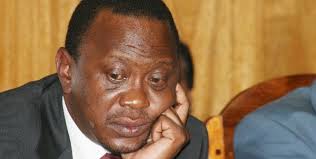[ad_1]
This is the year for Tanzania’s political hygiene, and, during the coming 350-plus days, we are likely to traverse momentous and fateful decisions and undertakings, which may fundamentally alter the way politics is played and the country is governed.
Many political analysts in Tanzania have taken 2020 as some kind of watershed, the year that will clarify some of the nagging questions that have defied facile explanation or prediction.
One major question is just how robust the competition will be, given that for most of the past four years the opposition has complained that it has been trammelled and forced to work under severe restrictions that have not allowed it leeway to do effective political work.
Police have arrested opposition leaders across the country have been arrested many times, on what they claim are trumped-up charges.
Freeman Mbowe, the chair of the main opposition party Chadema, described the situation as not conducive to free and fair elections.
He cited the national civic elections last November, which the opposition boycotted after over 94 per cent of their fielded contestants were disqualified due to technicalities.
Biased practices
Mr Mbowe said that the civic election was shrouded in biased practices in which the ruling party was given unfair advantages and its candidates were declared elected unopposed after the opposition candidates were arbitrarily declared unfit to contest.
“Although we have been placed in very difficult situations, we have strengthened our party and that is what frightens CCM. Recently we held our national conference; we have gained a lot of strength, we have prepared our cadres to take part in the election at every level from the village, district, all over, and if the election is run properly we shall field candidates in every electoral unit, upwards of 64,000, and they know we shall beat them,” Mr Mbowe said.
Asked if the opposition, and specially his party Chadema, was contemplating withdrawing from the general election, he was hesitant to answer in the affirmative, only saying they were observing the situation very carefully.
The Zanzibar ‘problem’
Then there has been the “problem” of Zanzibar, the semi-autonomous island partner in the Union, and whose elections since the reintroduction of multiparty politics have been clouded by opacity, giving rise to excessive levels of violence and deaths, culminating in the death of a number of people in January 2001 after a seriously disputed election a couple of months earlier.
Through those tragic events, which left an indelible stain on the administration of former president Benjamin Mkapa at Union level, and President Salmin Amour at Zanzibar level, a Government of National Unity was formed.
Matters were muddled again during the elections of 2015, and the ruling CCM has remained in power in the Isles despite that year’s election having been compromised and never concluded.
The main protagonist on the opposition’s side has been “Maalim” Seif Sharif Hamad, who hails from the smaller island of Pemba, which, with the larger Unguja island, makes up the Zanzibar archipelago. He has lost every election, and he has always claimed there was rigging.
In 2015, after Mr Seif had declared himself winner, the electoral commission annulled the results and called a fresh election, which Seif and his party, the Civic United Front (CUF), boycotted, thus rendering the election a one-party affair, introducing a governance stalemate that has remained to this day.
After Mr Seif was convinced that the government political party registrar was determined to wrest CUF from his control and hand it to Prof Ibrahim Lipumba, the other leader of a splintered CUF, Mr Seif resigned from CUF last year and joined, along with the thousands of his supporters in Pemba and Unguja, the hitherto small ACT-Wazalendo headed by young activist Zitto Kabwe, the Member of Parliament for Kigoma Urban.
By that stroke of the pen, CUF, until then a powerful force in Zanzibar, strong enough to make CCM quake in its boots, became a political exile shelter for a few faithful on the coast of Mainland Tanzania, almost erased from the political map of Zanzibar.
Conversely, Mr Kabwe, whose writ was in Kigoma and the sprinkling of members of Parliament on his ACT-Wazalendo, was now a voice to reckon with in Zanzibar, courtesy of his alliance with the powerful Mr Seif.
The fiefdom, whether it was conquered by Mr Seif’s charm, vision or guile, remains with him wherever he goes, and bureaucratic manoeuvres of the state to derail him become mere momentary irritants whose nuisance value amounts to little.
Low registration
To gauge how the Zanzibar situation was evolving, this past week I got in touch with Mr Seif and asked him how preparations for the general elections were going.
He painted a picture of what he called a deliberate plan to make sure that, in areas where the opposition is strong, few people are registered.
Many villagers have been waiting to be given Zanzibar residents’ IDs, which are issued by the department of national identification, but there have been delays that seem to be on purpose to ensure a low turnout, said Mr Seif.
He gave the example of his local area Shehiya, which has some 8,000 residents and should have at least 3,000 registered identity card holders, but only 600 people were registered.
Mr Seif said he has asked to meet with officials of the national identification authorities as well as the Zanzibar Electoral Commission to talk these matters over, and would impress upon them the need to be fair, just and transparent.
[ad_2]
Source link


















































